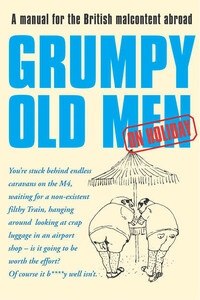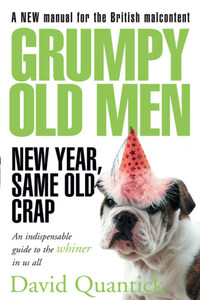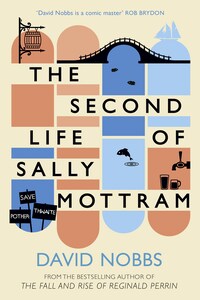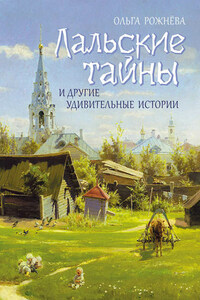Cliff Richard â no, wait! come back! â once sang, âWeâre all going on a summer holiday / No more worries for a week or two.â Cliff, or his lyricist, must have never been on holiday before that song was written, because if they had, the song would have run, âWeâre all going on a summer holiday / Constant worry for a week or two / Not to mention a huge financial loss, massive delays at Heathrow airport and some abject miseryâ. In the movie, Cliff and his pals drive a London bus through Europe. In reality, if theyâd had any sense, they would have driven a tank.
Holidays are terrible things. They are not ârelaxingâ. They are not âfunâ. They are awful. The people who say, âPhew! I need a holiday to get over that holiday!â are not telling half the story. âI need six months of complete rest plus a blood transfusion and fifty thousand pounds compensationâ would be nearer the mark.
From the moment you close your front door, wondering if all your plants will die and if you have left the gas on, to your arrival at an overcrowded airport staffed by people who hate you because you are going away and they have to work here, to your actual stay in some incomplete, lizard-ridden prison camp for sunbeds, there will be no respite. You will not relax. You will not have fun. You will not even be able to lounge by the pool because a) there is a dead mongoose in it, and b) there will be the Germans.
Deep down, we know holidays are not good. In the year 2000 the Trading Standards Institute received 12,551 complaints from people whoâd had vile holidays. A year later that figure had risen, amazingly, to 28,502. At this rate, by next Tuesday over 50,000 people a year are having holidays that are so bad they are compelled to complain to someone about them.
Itâs true that we all like to complain. We are ingenious in our efforts. In a recent report from something called the European Consumer Centre, 10,000 people had a righteous go at holidays. True, one pair of holidaymakers complained about the lack of potatoes in Rome. Admittedly, someone else was upset because he had booked a skiing holiday but when he arrived at the resort there was no snow. But why not? Surely we expect snow on a skiing trip. And where have the Romans hidden all the spuds?
We live on a cold, damp, wet island. We are entitled to get off it and go somewhere nice. In 2003, 15 million Brits went abroad. We spent nearly 30 billion quid abroad. And what do we get? Toilets that donât work. Food that we canât spell. And foreigners who donât like us. Foreigners are a major part of holidays. They live there, and they pretend they want us to visit. âCome to our country!â they insist. âBring money!â they mean.
And they do not understand our culture. They think we like warm beer, football, Shakespeare and the Middle Ages. This is true. The Frequently Asked Questions section of a major website for Americans visiting the UK contains the query: âCan tourists bring bows and arrows into Britain?â (The answer, brilliantly, was âThere are currently no restrictions on the importation of archery equipment into Britain.â) On one site, a Czech woman says of British âbooze touristsâ: âItâs disgusting. The British donât know when to stop. They drink and drink and drink.â And a Polish site for visitors to Britain contains this information about seaside holidays: âOlder adults are happy just to sit in their deck-chairs and occasionally go for a paddle with their skirts or trouser legs hitched up. The water is always cold and sometimes very dirty.â
As for the British abroad, the Polish traveller is told that âIn fact, about 40% of the population do not go away anywhere for their holidays.â Our own Office of National Statistics is more specific; that 40% is in fact the over-65s. The really big holiday-making group are those of us aged 45 to 54. And this in spite of the fact that, according to the same statistics, the 45 to 54 age group are some of the most grumpy people in the country, and the least likely to have a decent time abroad. Itâs true. With our dislike of change, travel, hot weather and having to speak foreign, us grumpy folk make very unlikely holidaymakers. If a grumpy person sends a postcard, when we write âWish you were here,â the unspoken missing word is âinsteadâ.
This book is for the unwilling traveller, the natural stay-at-home who has been somehow forced to go away from home, the reluctant tourist, and the person for whom the journey through life is bad enough, let alone the journey through customs â in short, the grumpy old man on holiday.
David Quantick










